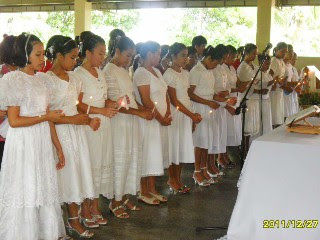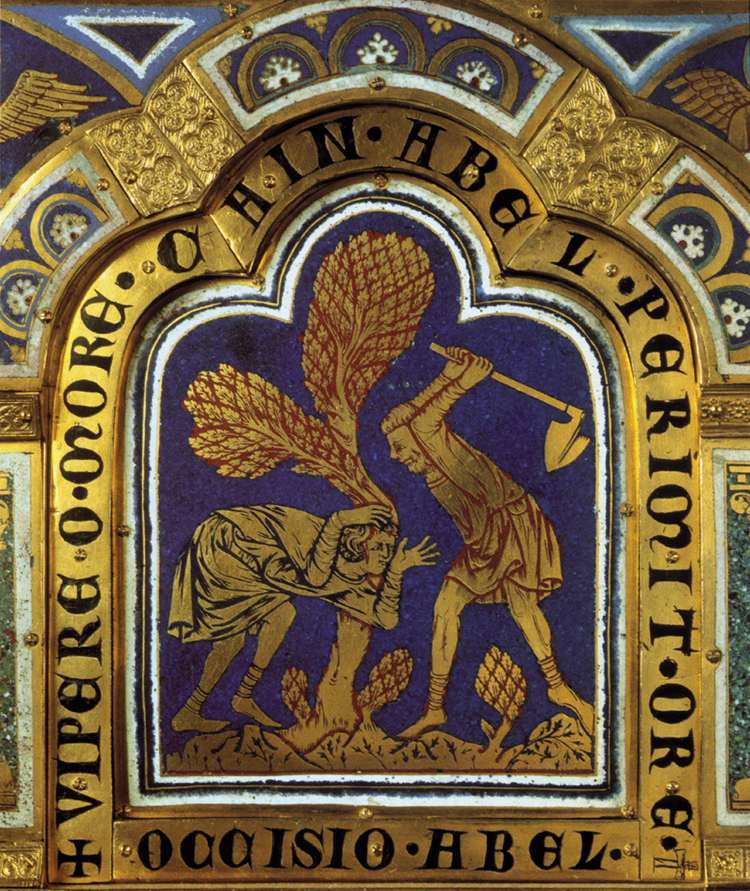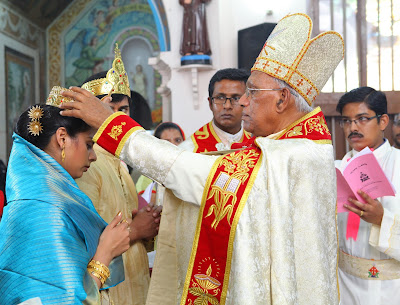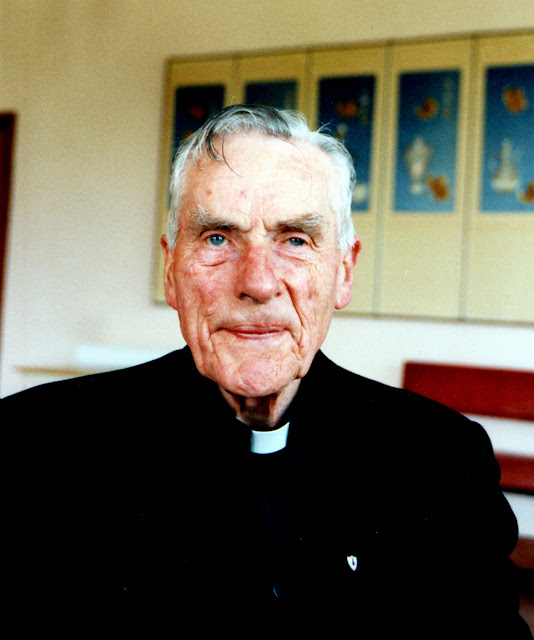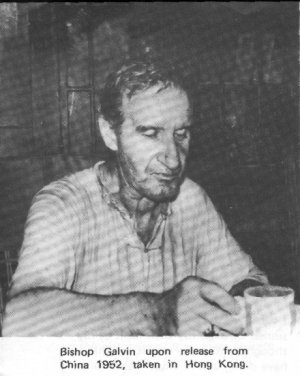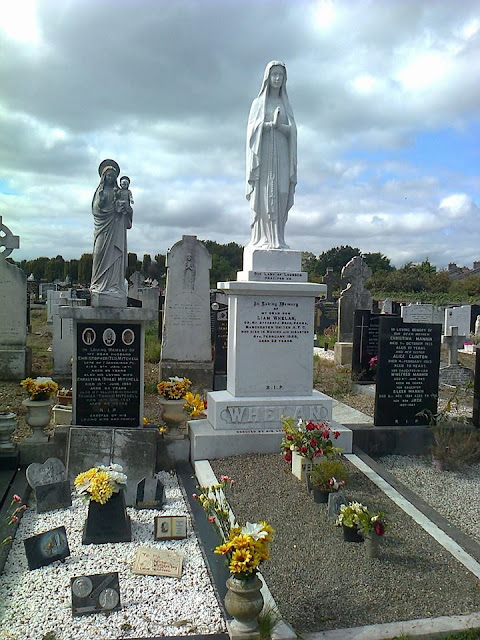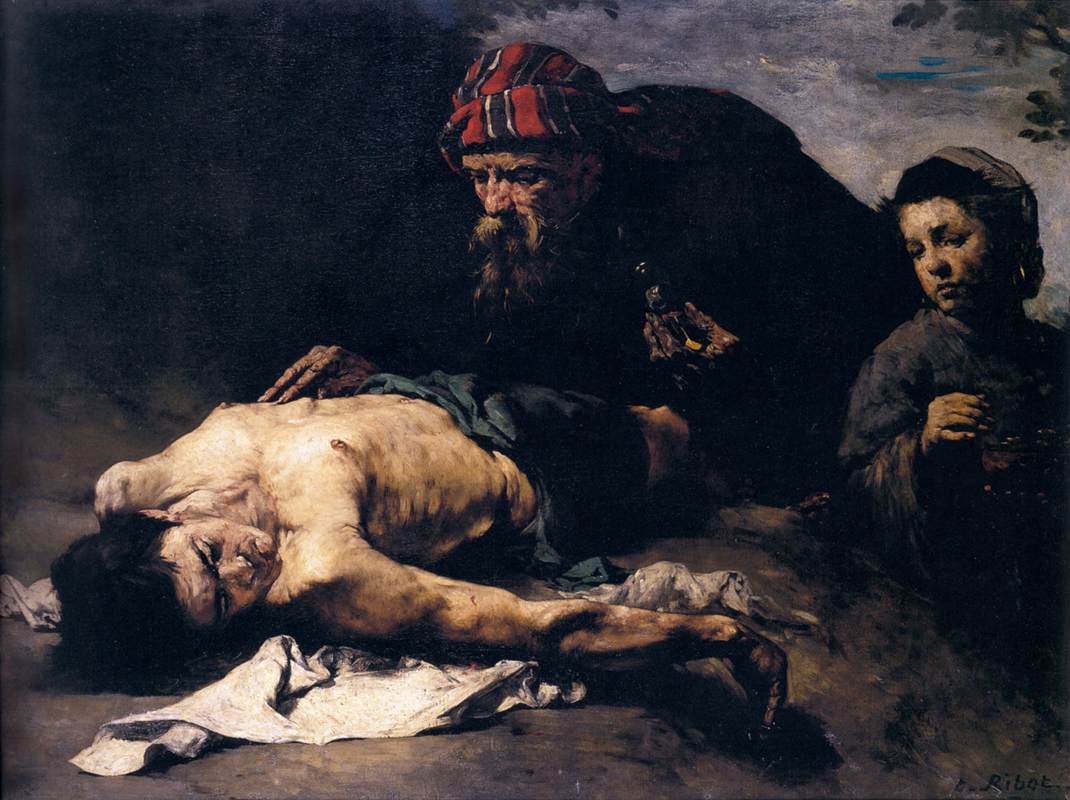
The Marriage at Cana, Marten de Vos, 1596-97
Musée du Louvre, Paris [Web Gallery of Art]
Readings (New American Bible: Philippines, USA)
Readings (Jerusalem Bible: Australia, England & Wales, India [optional], Ireland, New Zealand, Pakistan, Scotland, South Africa)
Gospel Luke 12:49-53 (New Revised Standard Version, Catholic Edition, Canada)
Jesus said to his disciples: “I came to bring fire to the earth, and how I wish it were already kindled! I have a baptism with which to be baptized, and what stress I am under until it is completed! Do you think that I have come to bring peace to the earth? No, I tell you, but rather division! From now on five in one household will be divided, three against two and two against three; they will be divided:
father against son
and son against father,
mother against daughter
and daughter against mother,
mother-in-law against her daughter-in-law
and daughter-in-law against mother-in-law.”

Blessed Paul VI [Wikipedia]
About 40 years ago when I had some programs on DXDD, a radio station in Ozamiz City, Mindanao, started by a Columban priest, Fr Charles Nolan, and now owned by the Archdiocese of Ozamiz, two friends of mine brought in a boy of about three whom they had found wandering at night. I appealed on the air for his family to come and bring him home. There was no response. My program was the last for the night and I was wondering what we’d do with the boy. The janitor and his wife, whom I’ll call Carlos and Teresa, happened to be there and said, ‘We’ll take him home. What’s one more mouth to feed?’ They had a small house and a large family.
The boy’s mother, who worked in a night club, was found a day or two later and Carlos and Teresa reunited them.
On 25 July 1968 Pope Paul VI issued his encyclical letter Humanae Vitae, which begins with these words:
The transmission of human life is a most serious role in which married people collaborate freely and responsibly with God the Creator. It has always been a source of great joy to them, even though it sometimes entails many difficulties and hardships.
The fulfillment of this duty has always posed problems to the conscience of married people, but the recent course of human society and the concomitant changes have provoked new questions. The Church cannot ignore these questions, for they concern matters intimately connected with the life and happiness of human beings.

Officiating at the wedding of friends in 2007
[M & J now have five children, God bless them]
The encyclical, which upholds the Church’s traditional teaching on family planning, immediately caused dissension within the Church, much of it quite bitter. It still provokes strong feelings and has been dismissed by many, maybe even by a majority of Catholics, especially in the West.
While no one threw Pope Paul into a well, as happened to the Prophet Jeremiah (First Reading), many did so metaphorically. Jeremiah had preached a message the authorities and the people didn’t want to hear. The message wasn’t his own but from God. He had told the people that those who stayed in Jerusalem would be slaughtered by the Babylonians, while those who fled, while losing their possessions, wouldn’t lose their lives. All of this came about because leaders and people had ignored God’s Covenant with them.
The role of the prophet can be summed up in the title of a book by Fr Bruce Vawter CM that we used in Scripture studies in he seminary: The Conscience of Israel.
Forty years after Humanae Vitae Pope Benedict spoke of the division that it had caused: The Document very soon became a sign of contradiction. Drafted to treat a difficult situation, it constitutes a significant show of courage in reasserting the continuity of the Church’s doctrine and tradition. This text, all too often misunderstood and misinterpreted, also sparked much discussion because it was published at the beginning of profound contestations that marked the lives of entire generations. Forty years after its publication this teaching not only expresses its unchanged truth but also reveals the farsightedness with which the problem is treated.
The Church has always seen marriage as the proper and only context for the most intimate relations between a man and a woman. And every human society has seen marriage in the context of the continuation of the human race, more specifically of the particular clan/tribe/nation and most specifically of the two families united through a wedding. And it’s hardly an accident that in St John’s Gospel the first sign or miracle of Jesus was the changing of the water into wine in Cana so that the marriage festivities could continue.
Pope Paul was reiterating in Humanae Vitae what the Church had always taught and what the Second Vatican Council teaches in Gaudium et Spes, Nos 47-52. No 51 includes this passage that speaks of the relationship between husband and wife in a way that calls them to the highest idealism: For God, the Lord of life, has conferred on men the surpassing ministry of safeguarding life in a manner which is worthy of man. Therefore from the moment of its conception life must be guarded with the greatest care while abortion and infanticide are unspeakable crimes. The sexual characteristics of man and the human faculty of reproduction wonderfully exceed the dispositions of lower forms of life. Hence the acts themselves which are proper to conjugal love and which are exercised in accord with genuine human dignity must be honored with great reverence.
Advice of Pope Francis to married couples
Down the years since Vatican II individuals who have rejected the Church’s teaching have sometimes been described as ‘prophets’. Many, no doubt, honestly thought that they were right and the Church’s leaders wrong.
But we see the results of the most intimate act between a man and a woman being removed from its proper context or when a responsible openness to new life is lacking. There is now an imbalance in many countries in the developed world where the proportion of younger people is getting smaller and smaller, where the one-child family is becoming more and more common, sometimes by coercion, as in China, sometimes by the choice that couples make. Many more than before now have no brothers or sisters, no uncles or aunts.
We see in many countries the increase in abortion, despite the availability of contraceptives.
Gaudium et Spes says, Hence the acts themselves which are proper to conjugal love and which are exercised in accord with genuine human dignity must be honored with great reverence. We see the very opposite in today’s world where the acts that the Council speaks of are seen as a form of ‘recreation’, not even within the context of some kind of commitment, and where the openness to cooperating with God in the creation of new life is thwarted.
We see the utterly bizarre notion of ‘marriage’ between two persons of the same sex being passed into law in many jurisdictions as a ‘right’ and the perhaps even more bizarre reality that so many think this is right and proper.
Pope Paul was reviled and dismissed by many for Humanae Vitae. The experience of married couples who have generously planned their families in a way that respects nature has not, by and large, been taken seriously.
The DXDD janitor, Carlos, and his wife Teresa had an openness to accepting new life, even if temporarily, that reflected a generosity of heart. They had no idea how long they might have to look after their new charge.
Vatican II and Pope Paul were both addressing that generosity that we are capable of, even when great sacrifice may be demanded. Pope Paul must have been aware of the great division that his encyclical would cause. Pope Benedict speaks of its publication as a significant show of courage in reasserting the continuity of the Church’s doctrine and tradition.
Pope Francis in his Apostolic Exhoration Amoris Laetitia, published earlier this year, reiterates the teaching of Humanae Vitae:
Blessed Paul VI, in the wake of the Second Vatican Council, further developed the Church’s teaching on marriage and the family. In a particular way, with the Encyclical Humanae Vitae he brought out the intrinsic bond between conjugal love and the generation of life: ‘Married love requires of husband and wife the full awareness of their obligations in the matter of responsible parenthood, which today, rightly enough, is much insisted upon, but which at the same time must be rightly understood… The exercise of responsible parenthood requires that husband and wife, keeping a right order of priorities, recognize their own duties towards God, themselves, their families and human society’ (No 68). In the Apostolic Exhortation Evangelii Nuntiandi, Paul VI highlighted the relationship between the family and the Church”.
Nearly fifty years after Humanae Vitae perhaps we should recognise as true prophets Blessed Paul VI who taught clearly and lovingly and the many married couples who, down the years, have faithfully lived the teaching of the Church that Jesus founded on the rock of Peter.

Wedding rings of M & J
Ego sum panis vivus, Giovanni Pierluigi da Palestrina (c.1535 – 1594)
Cappella Victoria, Jakarta, Indonesia.
A choir that mostly specializes in 16th-century sacred polyphony, especially the works of Palestrina and Victoria. A choir in line with the spirit of diaspora; has developed to include 33 singers from 14 parishes throughout the Jakarta Archdiocese (from its blog).
Communion Antiphon (John 6:51-52)
I am the living bread that came down from heaven, says the Lord.
Whoever eats of this bread will live for ever.
Antiphona ad Communionem (Johannes 6:51-52)
Ego sum panis vivus, qui de caelo descendi, dicit Dominus:
si quis manducaverit ex hoc pane, vivet in aeternum.

